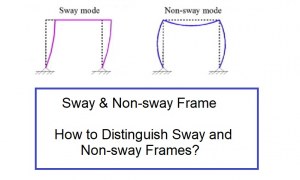🕑 Reading time: 1 minute
Foundation design and construction for Pre-Engineered Buildings are important to the assembly process. To ensure optimum integrity of new building, the foundation must meet certain design criteria and load conditions. It is required that all building foundations be designed by an experienced foundation engineer, and coordinated with all local city, county and state codes. Improper foundation construction will limit the building’s performance. The foundation should be sharply formed with true corners, straight sides, and a level top. This will allow for proper seating and alignment of all building components. Strict adherence to OSHA and other local codes or laws governing “shoring of excavation to prevent accidental cave-ins” is critical. Manufacture of Building Systems will furnish anchor bolt drawings to outline basic guidelines and considerations for foundation design. The accuracy of foundation construction and anchor bolt settings is the most important factor in achieving trouble-free component alignment and fit-up. Foundation errors and mis-location of anchor bolts are among the most frequent and troublesome errors made in metal building construction. Foundation must possess the following important characteristics.- It is recommended that the foundation be designed by an experienced foundation engineer, and coordinated with all local city, county and state codes.
- The foundation must be square, level and smooth.
- Anchor bolts must be set within +/- 1/16” of the specified anchor bolt drawing dimensions.
Foundation Layout Setting Anchor Bolts
Regardless of the type of foundation that is used and its specific configuration, the foundation outline should be carefully and accurately laid out before any excavation is made. Whenever possible, a transit or similar means should be used to layout the foundation perimeter. This will ensure accurate placement of corner measures and in turn, ensure a square foundation.
Fig.1: Foundation Layout
Check the foundation is square and level. Measure diagonally to the farthest points of the foundation frame / string-line. Adjust the frame / string-line as necessary until the two diagonal dimensions are equal. If the diagonal lengths are equal, the framing is square. Ensure the foundation is level. Setting Anchor Bolts:- To reduce the risk of anchor bolts pulling loose, do not erect any building components on “green” concrete. Concrete that has not cured properly may be damaged by erection equipment or building component affects. Normal Portland cement concrete should cure at least seven days, and high-early-strength concrete at least three days before the structural columns are erected. Due to tight tolerances in which your building was manufactured, it is extremely important that all anchor bolts are accurately placed (+/- 1/16”) in accordance with the provided anchor bolt plan.
Fig.2: Setting Of Anchor Bolt
All anchor bolts should be held in place with a template or similar means in order to maintain a plumb setting during the pouring of the concrete. Refer to the anchor bolt plan dimensions then make the necessary quantity of templates out of plywood or equivalent. All templates should be prepared in advance so they can be quickly nailed in place. Drill air relief holes in the template to allow trapped air to escape. When floating concrete, vibrate until wet concrete seeps though the top of air relief holes. A final inspection of all foundation requirements should be conducted prior to pouring concrete.

